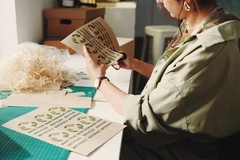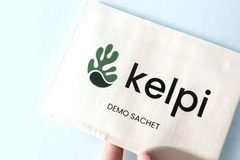Unilever packaging director: E-commerce boom provides opportunities for new refillable packaging formats
14 Apr 2021 --- Ahead of the Rethinking Materials virtual summit (May 19-20), PackagingInsights sits down with Hugo Menilo, Unilever’s global foods packaging director and a speaker at the event, to discuss the consumer goods giant’s explorations in bio-based packaging, advanced recycling, refillable e-commerce solutions and more.
The summit brings together key players in the packaging industry to present new opportunities for partnerships and investment in the changing landscape of plastics, bio-based alternatives, and circular solutions.
Held on a virtual platform, this year’s summit is focusing on challenges facing C-suite and director-level stakeholders.
Speakers will address how their companies plan to tackle plastic waste both upstream and downstream, the viability of new technologies and next-generation materials, routes to scaling up, and cross-sector applications in packaging, foodservice, personal care and fashion.
What are you hoping to gauge from the summit?
Menilo: I am looking forward to getting to know new technology alternatives to drive the circular economy and debating how to accelerate changes that have already started.
I want to engage potential partners willing to join Unilever in this journey to make packaging a truly sustainable part of the consumer experience.
What will you be contributing to the summit?
Menilo: I will be speaking on the panel “Engaging New Solutions to Meet Sustainability Commitments” where I hope to share Unilever’s vision of circularity in packaging, learn from the views of my fellow panelists and hopefully identify solutions that can benefit the industry, consumers and ultimately the planet.
In what ways is Unilever incorporating bio-based materials into its consumer packaging?
Menilo: As part of our commitments for a waste-free world, we’ve set ambitious targets to halve the total amount of virgin plastic we use, increase our use of recycled plastic to 25 percent and only use reusable, recyclable or compostable plastic packaging – all by 2025.
 The Cif ecorefill Power&Shine Kitchen refillable bottle. We’re finding ways to remove plastic entirely from some of our products and packaging, and biodegradable solutions for our food and beverage brands are part of that innovation scope.
The Cif ecorefill Power&Shine Kitchen refillable bottle. We’re finding ways to remove plastic entirely from some of our products and packaging, and biodegradable solutions for our food and beverage brands are part of that innovation scope.
Our use of bio-based materials depends on ensuring they have a lower environmental (and social) impact while reducing dependency on non-renewable feedstock. We assess suitability based on three essential criteria:
- The materials must not compete with staple food crops.
- They must show an equivalent or improved life cycle impact.
- They must not harm existing recycling infrastructures.
One example of where we have used bio-based materials is our PG Tips tea brand in the UK. The brand changed to 100 percent biodegradable tea bags, using a renewable, plant-based material to seal the pyramid-shaped bags.
What are the challenges in bringing bio-based solutions to market at scale?
Menilo: The first set of challenges is technical: finding materials that meet the three criteria previously mentioned. The next challenge is finding solutions with functional properties that are as similar to the materials they should replace. Finally, those materials must be available at the scale we require.
How does the shelf-life of bio-based solutions compare to fossil-based plastics?
Menilo: One of the most important functional properties of fossil-based polymers is the barrier to moisture and oxygen that helps preserve the product from oxidation and microorganism growth.
It just so happens that a considerable number of bio-based polymers (apart from bio-based versions of standard polymers like polyethylene and polypropylene) do not provide similar barrier levels. One of the most important technological unlocks in this space is the surge of materials that, while providing the required barrier levels to oxygen and moisture, can properly decompose and degrade.
What is Unilever’s view of Extended Producer Responsibility (EPR) schemes?
Menilo: We support well-designed EPR regulations, which reflect the unique waste management requirements in that country. We believe well-designed EPR schemes can be a game-changer in the fight against plastic waste. They boost recycling systems, ensure money is invested in the right places, hold businesses accountable for the packaging choices they make, and as a result, enable a circular economy.
In what ways is Unilever embracing increasingly advanced recycling technologies to achieve more circular packaging?
Menilo: There are plenty of technical challenges that we’re tackling in our better plastic journey. For example, recycled plastic packaging has to meet the same technical and safety standards as virgin The recycled plastic Magnum ice cream tub.plastic standards, higher for food packaging.
The recycled plastic Magnum ice cream tub.plastic standards, higher for food packaging.
One direct consequence of that is that there is much less availability of this kind of material. Another consequence is that some commonly used polymers – because of their chemistry’s nature – simply do not achieve the necessary levels to be used in the foods industry when recycled via traditional mechanical means.
Advanced recycling comes into play precisely at this spot, allowing commonly used polymers to be recycled to the “purity” levels required for the use in foods.
Our Magnum ice cream brand worked with SABIC to overcome this challenge and launched recycled plastic ice cream tubs. After a successful pilot, Magnum has rolled out seven million ice cream tubs made from recycled plastic.
This is a big technical achievement as the plastic needs to be food grade and withstand freezing temperatures. We intend to roll out this technology further, for example, with Knorr food service tubs that have already hit some shelves in Europe.
How has the COVID-19-induced e-commerce surge impacted Unilever’s drive for more sustainable packaging?
Menilo: The rise in e-commerce has certainly provided opportunities for sustainable packaging. For example, the channel tends to be a good fit for concentrated products and refillable packs.
In this space, probably my favorite example is the Cif Ecorefill, which we launched in the UK. Our ten times concentrated refill packs use 75 percent less plastic and attach to current Cif Power & Shine bottles, enabling shoppers to keep their spray bottle for life.
The Ecorefill is 100 percent recyclable once the plastic sleeves are removed. We’re increasing the recycled plastic content in the spray bottles.
Another example is Dove’s newly launched refillable deodorant, which comes with a reusable stainless-steel case designed to last for life. The refills use far less plastic, and the small amount used is 98 percent recycled.
By Louis Gore-Langton











